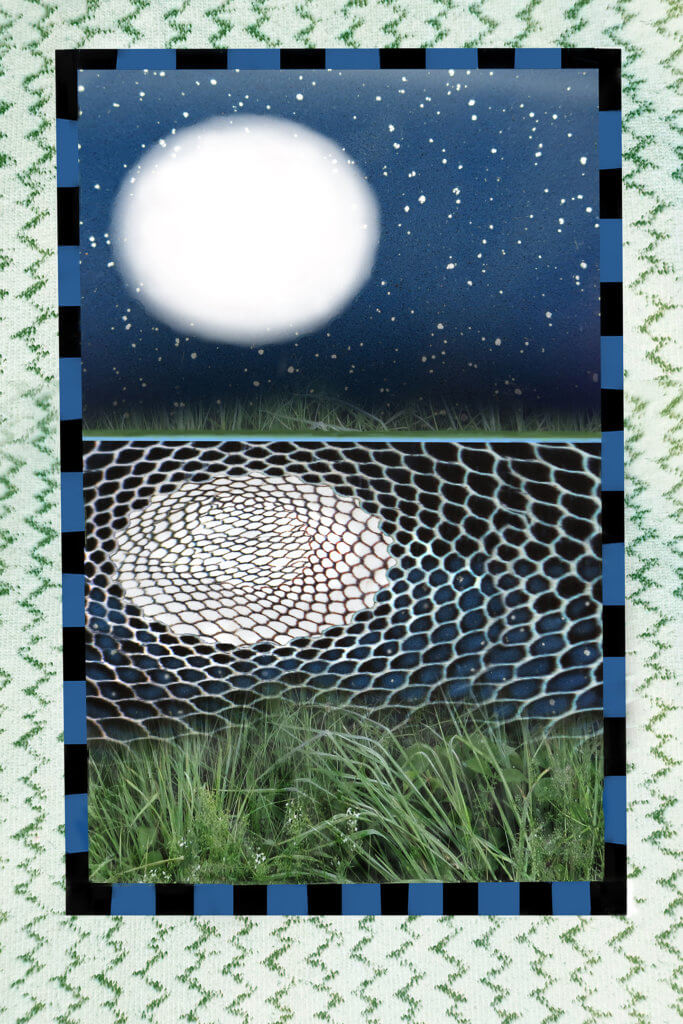 “You’re taking this grieving thing too far,” he said, shaking his head, and giving me a searing look. If we shared a thousand more hours and a million words, he’d be no closer to understanding anything about my ways of dealing with grief.
“You’re taking this grieving thing too far,” he said, shaking his head, and giving me a searing look. If we shared a thousand more hours and a million words, he’d be no closer to understanding anything about my ways of dealing with grief.
“A dozen people getting together. It’s not like we’re tearing our hair out or shredding our shirts or anything. What’s the problem with talking and connecting?” I asked, eyeing the last piece of pizza. His eyes focused on the dining room table, now covered with dirty paper plates and empty wineglasses. “People grieve in different ways,” I added, wondering if he had ever experienced deep debilitating grief. I’d never wish that for him. But how could one know joy without acknowledging loss? If he simply slipped past all of life’s sadness, like driving through stop signs late at night when no one’s looking, would his life be better?
“Help yourself to some shrimp cocktail. And take some dumplings,” I said, impatient to get back to my guests. I’d left them parked on the deck with six different desserts, overlooking the five-million-year-old boulders planted around the pond. We’d been discussing our children, the age of the rocks, the possibility of an afterlife, Stephen Hawking’s multiple dimensions, living with lymes disease, and where to buy chocolate mice. In this group I could say anything and never hear, “ You’re taking your grieving too far.”
The dog and I returned to the circle outside and the conversation continued around us. The sky grew darker. The grunts of the bullfrogs grew louder. The dog fell asleep at our feet. And too soon everyone was smiling, saying thank you and goodbye.
They were gone before the full moon rose over the pond. Then, the dog trailed me as I cleared the deck, and we watched the fractured reflection of the moon in the black pond. I made a wish that all who suffer might find friends to sit with during their dark times.
What helps you deal with emotional pain? Sharing with a friend? Joining a group? Talking to God? Talking to the moon? To the dog?
Please Share on your Social Media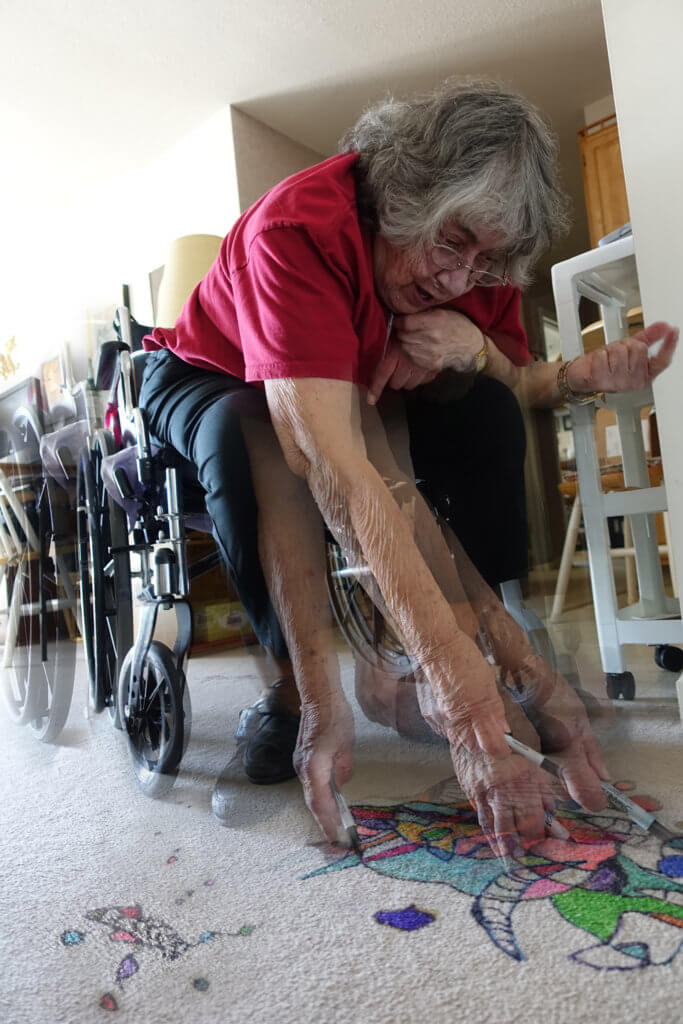 “When are you going to photograph me again?” the most adventurous one of my friends asked. It had been eighteen months since I last photographed her. Since then we’d spent hours together in emergency rooms and doctor’s offices. We’d also gone to plays and dined out in local ethnic eateries. But over the past year my friend has become more and more dependent on her wheelchair and oxygen tanks. I can’t recall when I last saw her walk more than a step or two. The oxygen tubes have become a permanent facial feature. She would no longer want to pose for pictures and then be posted all over Facebook and Twitter, I thought.
“When are you going to photograph me again?” the most adventurous one of my friends asked. It had been eighteen months since I last photographed her. Since then we’d spent hours together in emergency rooms and doctor’s offices. We’d also gone to plays and dined out in local ethnic eateries. But over the past year my friend has become more and more dependent on her wheelchair and oxygen tanks. I can’t recall when I last saw her walk more than a step or two. The oxygen tubes have become a permanent facial feature. She would no longer want to pose for pictures and then be posted all over Facebook and Twitter, I thought. “I love being home with you,” I told the dog, when everyone I knew was out somewhere having fun, and I was feeling antsy with nowhere to go. “But now let’s find something beautiful and joyful to photograph. Something besides you,” I said, and followed her flickering tail around the pond, stopping to take pictures of the water and wildflowers. A colossal pink cloud floated overhead. I snapped a dozen shots of it, awed by its rosiness.
“I love being home with you,” I told the dog, when everyone I knew was out somewhere having fun, and I was feeling antsy with nowhere to go. “But now let’s find something beautiful and joyful to photograph. Something besides you,” I said, and followed her flickering tail around the pond, stopping to take pictures of the water and wildflowers. A colossal pink cloud floated overhead. I snapped a dozen shots of it, awed by its rosiness.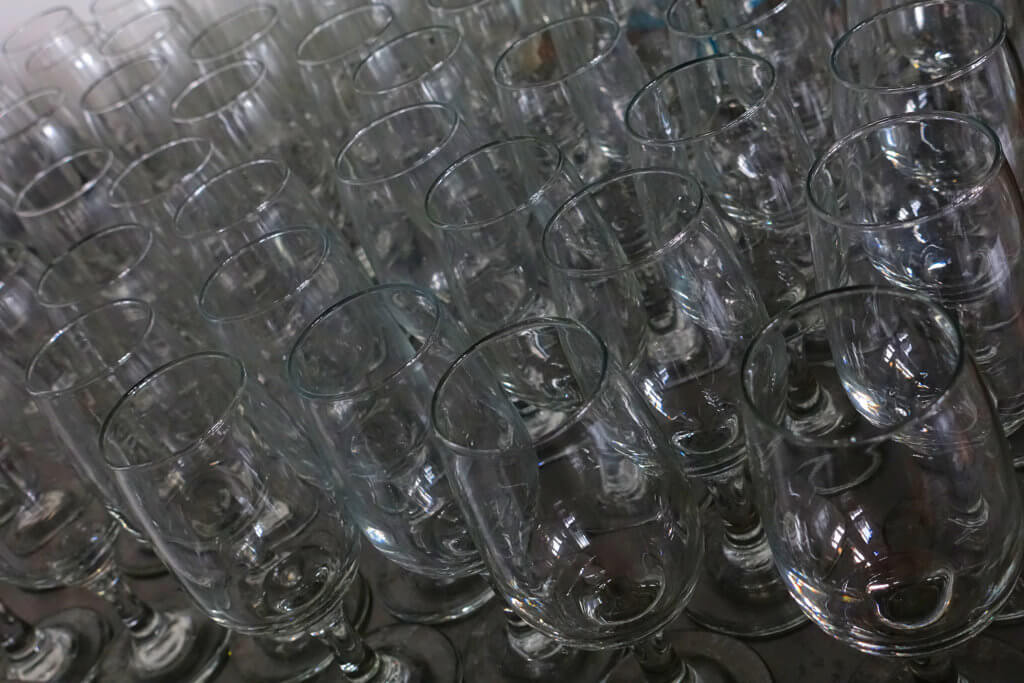 Tip the bottle and pour: one-Mississippi, two-Mississippi, three-Mississippi, …seven. Next glass. Pour: one-Mississippi, two…. Focus. Don’t breathe. Don’t blink. Be here. Exclusively here. Now. There is nothing beyond the pouring of the wine into each glass. 26 glasses. 18 different wines today, each to be poured and served to 24 people in the class. And the instructor. And myself. Over 90 bottles of wine in 5 days. Can hardly wait to taste the aged Bordeaux. Oh, and the Burgundies! This week of work at
Tip the bottle and pour: one-Mississippi, two-Mississippi, three-Mississippi, …seven. Next glass. Pour: one-Mississippi, two…. Focus. Don’t breathe. Don’t blink. Be here. Exclusively here. Now. There is nothing beyond the pouring of the wine into each glass. 26 glasses. 18 different wines today, each to be poured and served to 24 people in the class. And the instructor. And myself. Over 90 bottles of wine in 5 days. Can hardly wait to taste the aged Bordeaux. Oh, and the Burgundies! This week of work at 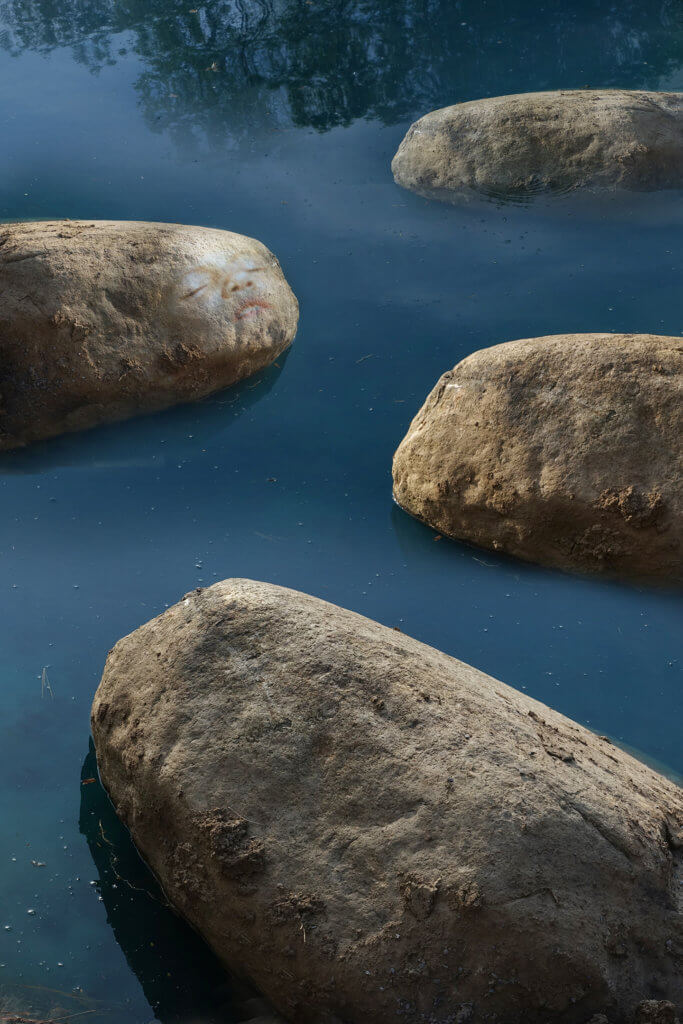 Consider all the ways we cause our selves and others suffering. If, once in a while, we were to borrow another’s view of life, we might find a path to peace.
Consider all the ways we cause our selves and others suffering. If, once in a while, we were to borrow another’s view of life, we might find a path to peace.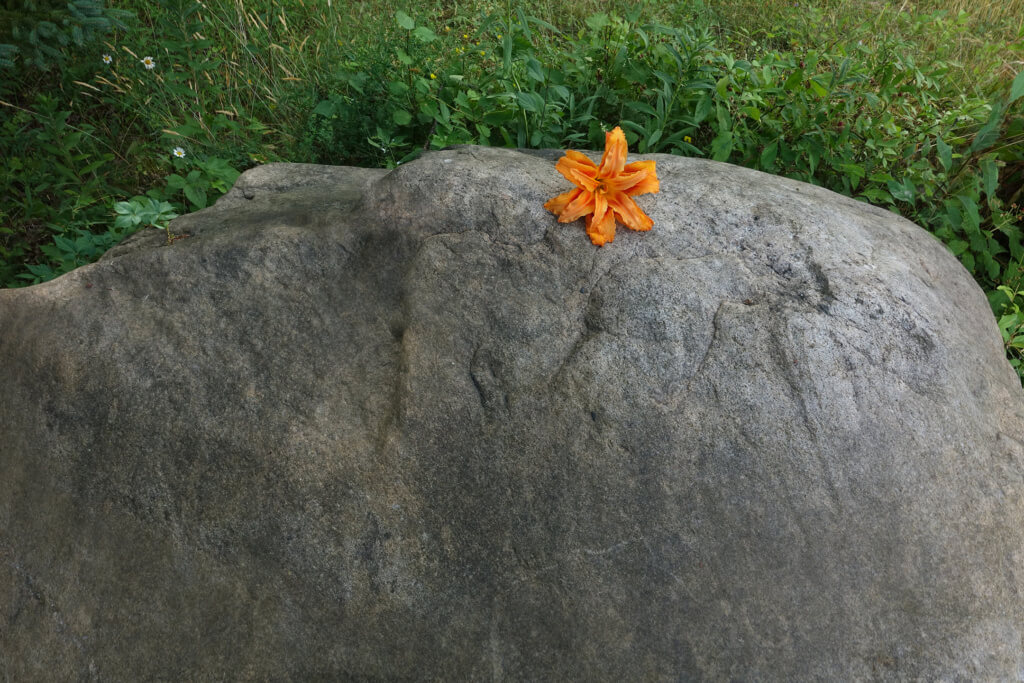 “Another boulder,” I hooted, as Excavator #5 dislodged a large mud-covered rock. That made four. Four boulders now sat in my yard. Solid. Substantial. They would outlast me by eons, hanging out on this land forever.
“Another boulder,” I hooted, as Excavator #5 dislodged a large mud-covered rock. That made four. Four boulders now sat in my yard. Solid. Substantial. They would outlast me by eons, hanging out on this land forever.